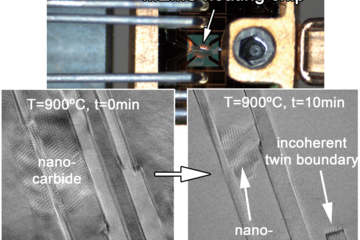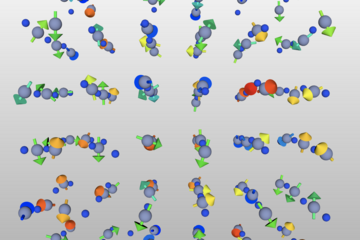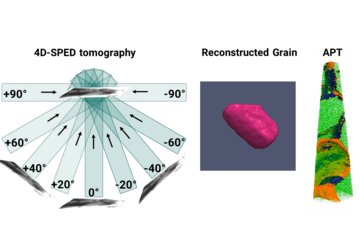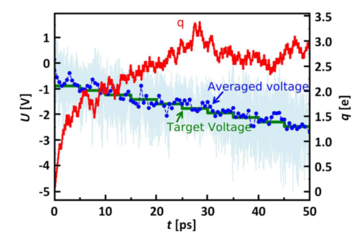All genres
21.
Talk
First principles Determination of Phase Transitions in Magnetic Shape Memory Alloys. Group Seminar in Materials Department, University of California (UCSB), Santa Barbara, CA, USA (2008)
22.
Talk
Determination of symmetry reduced structures by a soft-phonon analysis in magnetic shape memory alloys. 2nd Workshop on ab initio phonon calculations, Cracow, Poland (2007)
23.
Talk
First principles Determination of Phase Transitions in Magnetic Shape Memory Alloys. MRS Fall Meeting 2007, Boston, MA, USA (2007)
24.
Talk
Phase transformation of Ni_2MnGa shape memory alloy from first principles: The pre-martensitic transition. PAW workshop 2007, Goslar, Germany (2007)
25.
Talk
First ab initio determination of the phase transformation of Ni_{2}MnGa: The pre-martensitic transition. e-MRS 2007 Fall Meeting, Warsaw, Poland (2007)
26.
Talk
Ab initio prediction of structural and thermodynamic properties of magnetic shape memory alloys. Euromat 2007, European Congress on Advanced Materials and Processes, Nürnberg, Germany (2007)
27.
Talk
Ab initio investigation of temperature dependent effects in Ni_{2}MnGa: The pre-martensitic transition. Convention of the SPP 1239, Castle Eichholz in Wesseling, Germany (2007)
28.
Talk
Determination of symmetry-reduced structures by a soft-phonon analysis in magnetic shape memory alloys. Physics Seminar of Loughborough University, Loughborough, UK (2007)
29.
Talk
Ab initio determination of symmetry-reduced structures by a soft-phonon analysis in Ni_{2}MnGa. Spring meeting of the German Physical Society (DPG), Regensburg, Germany (2007)
30.
Talk
Ab initio prediction of structural and thermodynamic properties of magnetic shape memory alloys. Focus meeting of the SPP 1239: Fundamentals of the Magnetic Shape Memory Effect: Materials properties & simulations, Schloss Ringberg, Germany (2007)
31.
Talk
Ab initio prediction of structural and thermodynamic properties of metals. International Max-Planck Workshop on Multiscale Materials Modeling of Condensed Matter, Sant Feliu de Guixols, Spain (2007)
32.
Poster
First principles determination of structural phase transitions in smart materials. International Workshop on Multiscale Materials Modelling (IWoM3), Berlin, Germany (2009)
33.
Poster
Phase transformations of Ni2MnGa shape memory alloy from first principles. International Workshop on Ab initio Description of Iron and Steel (ADIS2008), Ringberg Castle, Germany (2008)
34.
Poster
Ab initio investigation of temperature dependent effects in magnetic shape memory alloys. Evaluation of the SPP 1239 program, Dresden, Germany (2008)
35.
Poster
First principles determination of phase transitions: The (pre)martensitic transition in Ni2MnGa. UCSB-MPG Workshop on Inorganic Materials for Energy Conversion, Storage and Conservation, UCLA Lake Arrowhead Conference Center, CA, USA (2008)
36.
Poster
A first principle determination of phase transitions in magnetic shape memory alloys. Multiscale approach to alloys: Advances and challenges, Stockholm, Sweden (2007)
37.
Poster
Determination of symmetry reduced structures by a soft-phonon analysis in magnetic shape memory alloys. Theory meets industry. The impact of density-functional calculation on materials science, Vienna, Austria (2007)
38.
Poster
Towards an ab initio determination of the phase transformations of Ni2MnGa. Fokus-Treffen of the SPP 1239, Schloss Ringberg, Germany (2007)
39.
Poster
Determination of symmetry-reduced structures by a soft-phonon analysis in magnetic shape memory alloys. 13th International Workshop on Computational Physics and Materials Science: Total Energy and Force Methods, Trieste, Italy (2007)











